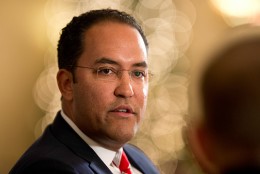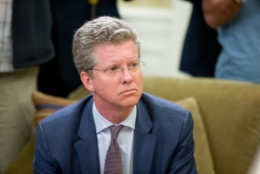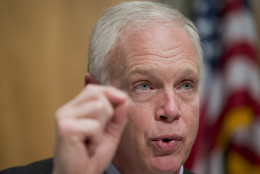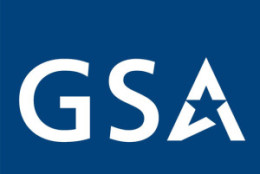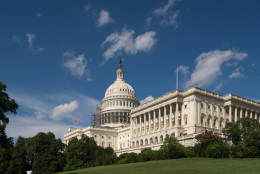Reporter's Notebook
-
The Modernization Government Technology Act received approval from the Oversight and Government Reform Committee on Sept. 15 and will likely get voted on by the full House on Sept. 20.
September 19, 2016 -
The Office of Management and Budget issued new guidance requiring agencies to name a deputy assistant secretary as the senior accountable official for privacy.
September 19, 2016 -
Government sources tell Federal News Radio that some in the departments of Commerce, Agriculture and Labor also are pushing back against the implementation of the intrusion detection and prevention program known as EINSTEIN 3-Accelerated (E3A).
September 12, 2016 -
The General Services Administration is proposing to change the multiple award schedules program to allow agencies to have task orders that allow for other direct costs (ODCs).
September 12, 2016 -
The Centers for Medicaid and Medicare Services responded to a Reporter’s Notebook story that highlighted concerns about a recent contract award for the cyber protections of Healthcare.gov portal.
September 12, 2016 -
Dawn Leaf, the Labor Department’s chief information officer, is retiring after more than 17 years in government, while MaryAnn Monroe, the director of customer experience and chief of staff for public experience/USAGov in GSA’s Technology Transformation Service is leaving the government to join the private sector.
September 12, 2016 -
An analysis by Federal News Radio found only a handful of agencies are expected to receive funding to create digital services offices next year, but that may not be a sign of doom for this effort.
September 06, 2016 -
Legislators came out strongly in favor of the Digital Accountability and Transparency Act (DATA Act) in the 2017 spending bills.
September 06, 2016 -
IDC Government found the federal government spends almost four times as much on technology per employee on average than other industries.
September 06, 2016 -
Industry sources say a $67.6 million award contract to Iron Vine Security is concerning because the agency may have used a low-cost, technically acceptable approach.
September 06, 2016 -
Federal procurement experts say Latvian Connection is alleging problems with how agencies are interpreting and implementing the Small Business Act and other policies and therefore should seek relief from Congress or the FAR Council and not through protests.
August 29, 2016 -
Ron Ross, a fellow at the National Institute of Standards and Technology, and Bob Bigman, a retired CIA chief information security officer and now president of 2BSecure, a consulting firm, made the case for the public and private sectors to move to trustworthy computing more quickly during presentations before the Commission on Enhancing National Cybersecurity.
August 29, 2016 -
The Government Accountability Office has decided on six of the 14 remaining protests, dismissing five and denying one, for the Human Capital and Training Solutions (HCaTS) contract.
August 29, 2016 -
NASA’s Chief Information Officer Renee Wynn decided to let the authority to operate for its desktops, laptops and end user systems expire after ongoing cybersecurity problems with its contractor.
August 22, 2016 -
The General Services Administration held a reverse auction to set up contracts for five agencies to buy more than 45,000 laptops, desktops as part of a centralized procurement.
August 22, 2016

